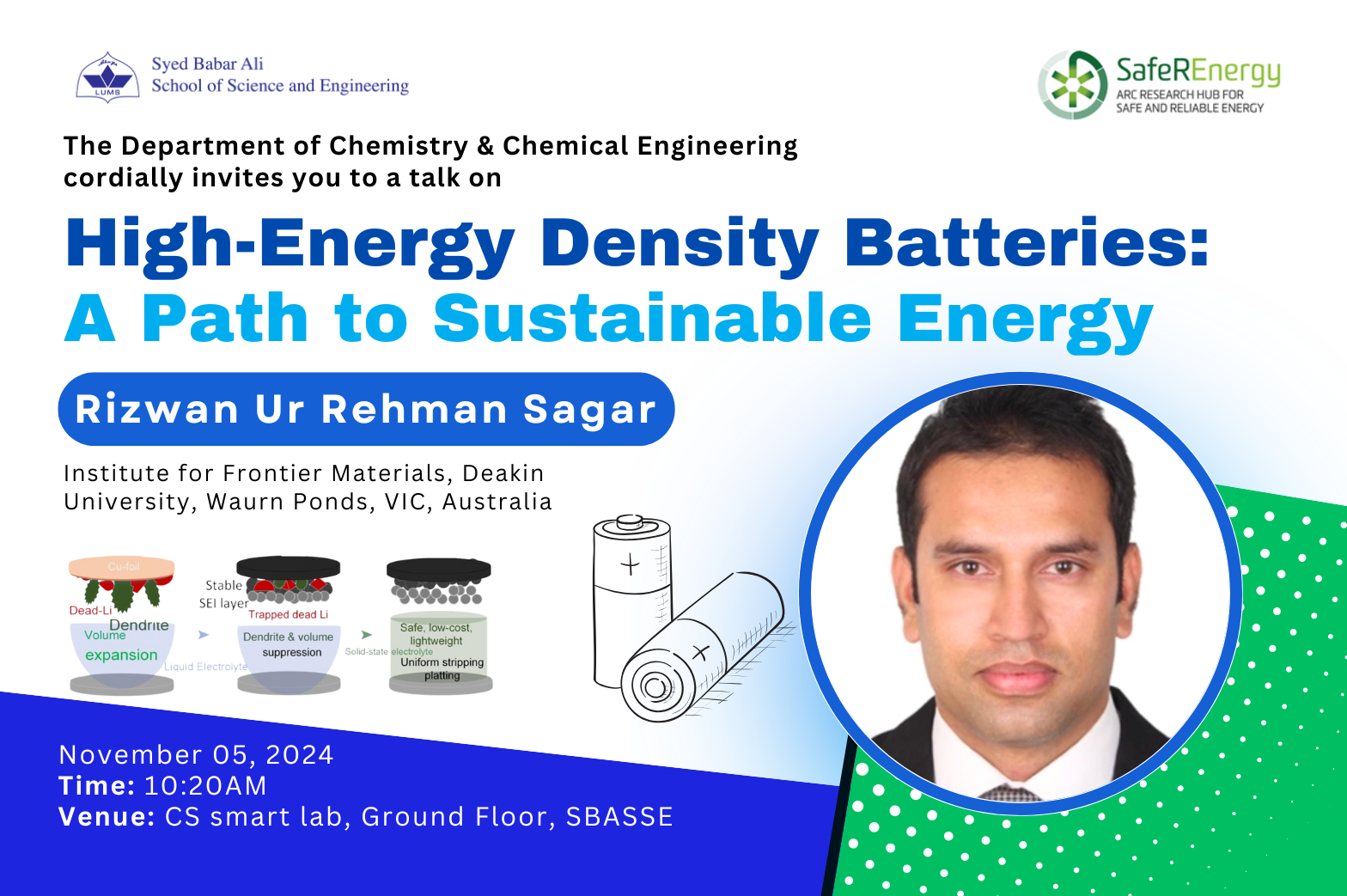
High Energy Density Batteries: A Path to Sustainable Energy
Rizwan Ur Rehman Sagar completed his PhD (2010–2015) degree in Materials Science and Engineering, Tsinghua University, Beijing, China. He has been served as post-doctorate fellow (2016-2018) in College of Materials Science and Engineering, Shenzhen University. During that period, he was awarded research funding from Postdoctoral Science Foundation of China. In addition, he has been selected as an excellent postdoc (2018-2020) from Tsinghua Shenzhen International Graduate School, Shenzhen, China and and obtain a prestigious research funding from the National Natural Science Foundation as PI. He also served Jiangxi University of Science and Technology, Ganzhou, as Associate Professor where he got another prestigious award of Foreign Research Expert in China-2022. He is actively engaged in the fabrication of low-dimensional materials high energy density battery research. He has been published more than 80 scientific articles in well-reputed journals and also served Associate Editor in different journals especially Nanoscience-Frontiers in Chemistry. Recently, he is working in the Institute for Frontier Materials, Deakin University-Geelong Australia.

